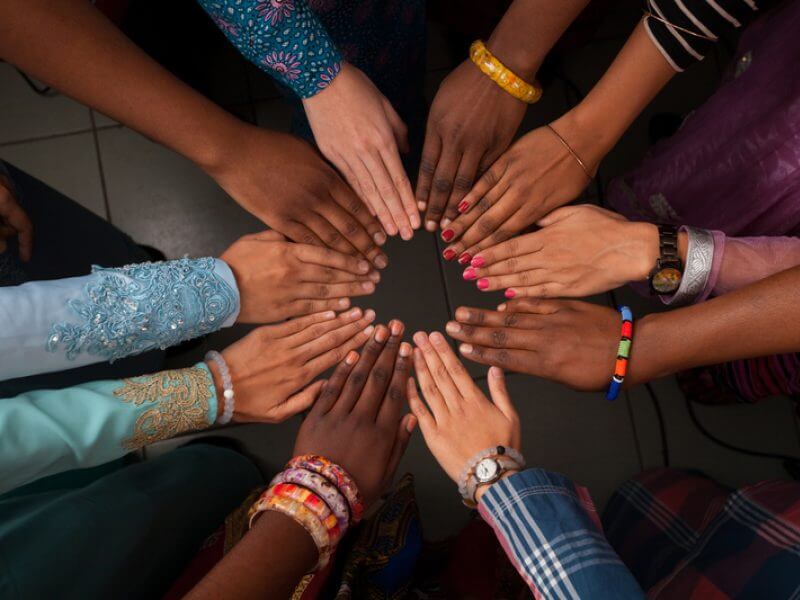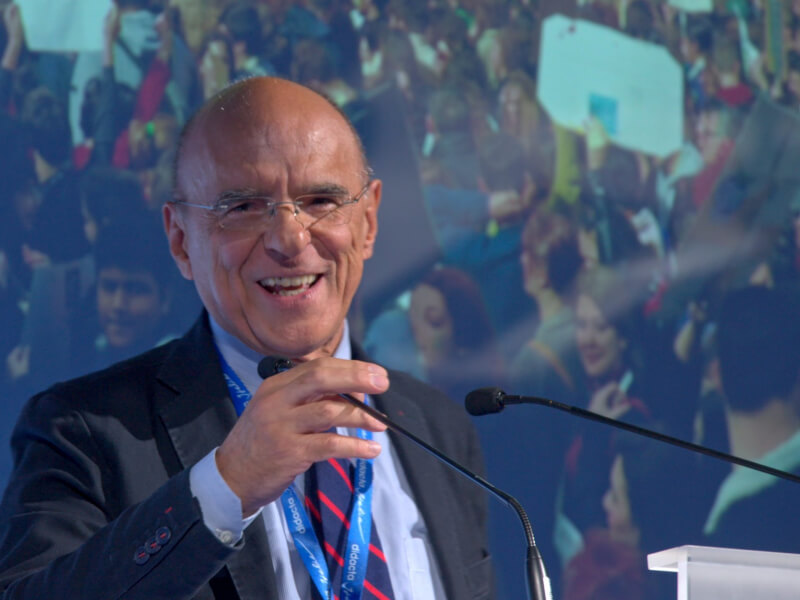27 October 2022 – The purpose of human institutions is to secure the wellbeing of people and Earth. Despite our differences, all of Earth’s people share a common destiny that depends on our learning to live together with mutual commitment to a foundational truth recognized by our early ancestors: “I am because you are.” South Africans call it ubuntu.
Now, however, we get near-daily reminders of the failure of our institutions to uphold that truth. Ignoring ubuntu, they pit us against each other in a deadly competition to dominate and exploit both the planet and our neighbors.
Our future depends on cooperating to create new institutions that support us in caring for and living within the means of a finite living Earth. But competition presents a terminal barrier to progress on two defining fronts: the growing number of billionaires, and the growing dominance of the world’s largest economies. The United States currently leads in both fronts. China is in second place but is positioned to soon take the lead.
Two current examples stand out in revealing the profound institutional failure that imperils our common future. Each underscores the need for the deep transformation we have only begun to envision.
- The U.S. has long presented itself as the model of prosperity and democracy for other nations to emulate—a conceit that is fast losing its luster. In addition, between 2019 and 2021, life expectancy in the United States dropped from 79 years to 76 years—the sharpest two-year decline in a century.
- The U.S. and China are confronting each other over many issues, most recently the status of Taiwan. If we are to move toward peace, equality, and a sustainable climate on which a viable human future depends, our two countries must join in common cause to create a world in which the very concept of a global superpower is a relic of history.
Alarming statistics on the dramatic fall in U.S. life expectancy come from a New York Times news story on a report by the U.S. National Center for Health Statistics. COVID-19 was the major driver.
Dr. Steven Woolf, director emeritus of the Center on Society and Health at Virginia Commonwealth University, observed that while other high-income countries were also hard hit by COVID-19 in 2020, most had begun to recover by 2021. “None of them experienced a continuing fall in life expectancy like the U.S. did, and a good number of them saw life expectancy start inching back to normal,” Woolf told the Times. U.S. life expectancy is now the lowest it has been since 1995. Among the world’s high-income nations, the United States is leading—in the wrong direction.
According to Dr. Woolf, compared with other high-income countries, we in the U.S. are handicapped by a fragmented, profit-driven health care system, poor diet, lack of physical activity, smoking, widespread access to guns, and high levels of poverty and pollution. Break it down, and much of our loss traces to the failures of an economic system captive to the power of profit-maximizing corporations.
We bear the consequences not just in our health industry. We also bear them in our food and agriculture, gun, automobile, and other industries that put financial returns to their richest shareholders above the well-being of their own workers and the communities in which they do business.
If we evaluate these industries based on the flow of profits to the rich, they are exemplary. If, however, we evaluate them based on their contributions to the well-being of people and Earth, they are literally killing us—revealing the U.S. as a model the rest of the world best avoid at all costs. Here are basics of the billionaire problem:
On Jan. 17, 2022, Oxfam International reported that the wealth of the world’s 10 richest billionaires had doubled since the beginning of the pandemic. Incomes of 99% of the world’s people had fallen while corporate profits soared as those companies raised their prices faster than their costs rose—the automobile industry being but one example.
In March 2022, Forbes identified a global total of 2,668 billionaires with a combined wealth of $12.7 trillion, up significantly from the 2,096 billionaires it had identified in 2020 before COVID became a global pandemic. The U.S. leads the world, with 735 billionaires holding a collective $4.7 trillion in financial assets. China is a close second, with 607 billionaires holding $2.3 trillion in assets. Together, the two countries account for 56% of the total assets of all the world’s billionaires.
The more inequality grows, the more power shifts to those the current system enriches, thus increasing their ability to further shape the system to their advantage. Those competing for the top spot on the Forbes billionaires list have chosen to ignore the obvious reality that there will be no winners on a dead Earth.
On the global superpower front, the U.S. and China compete for global economic and military dominance. The U.S. military budget dwarfs that of all other nations, but here, too, China is in second place and growing rapidly.
An obvious place to start in eliminating human environmental damage to Earth is with things that provide us with no real benefit. War is an obvious example. As Indian Prime Minister Narendra Modi recently pointed out to Russian President Vladimir Putin, “this is not an era of war.”
So true. It is an era for eliminating war and moving forward a long overdue process of disarmament.
Achieving the wellbeing of both people and Earth will require a radical sharing of power to facilitate the cooperative learning and equitable resource sharing that are essential if humanity is to achieve the future most people seek. A key part of the process is transforming our society into an ecological civilization, which I outlined in my Club of Rome paper, “Ecological Civilization: From Emergency to Emergence.”
The U.S. has presented itself as a model of democracy and prosperity for the world to emulate. China has led the world in reducing extreme poverty and has written a commitment to an ecological civilization into its constitution. Yet both nations stand out as the primary drivers of militarism, extreme inequality, and environmental devastation, pushing humanity toward social and environmental collapse. If our two countries continue competing to be the last global superpower on a dying Earth, we will fail to meet the minimum targets that science tells us are essential to avoid triggering environmental tipping points from which there will be no recovery. This existential crisis presents an opportunity for unprecedented cooperation between China and the U.S., along with other nations everywhere, in which we apply our proven creative potential to build a world of peace, equality, and a thriving Earth.
First published in YES!Magazine






